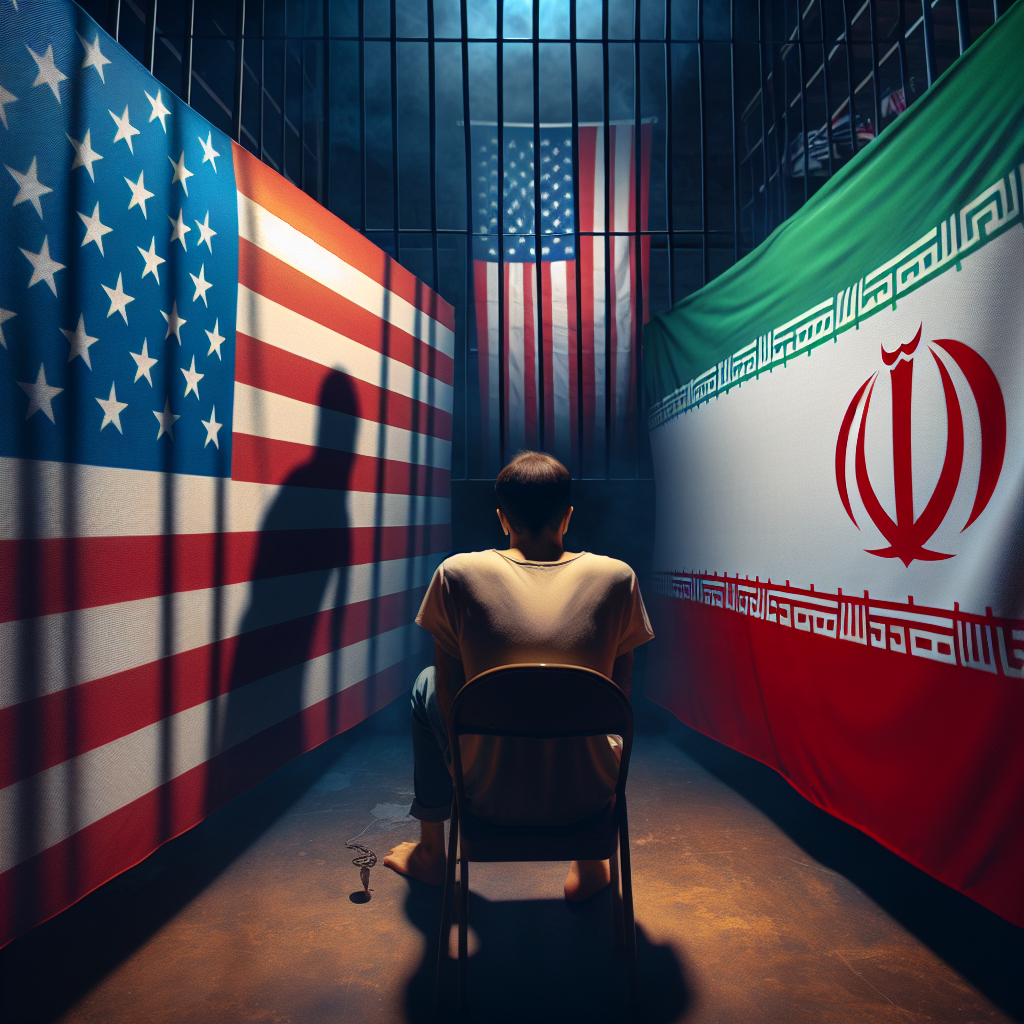Title: Iranian-American Journalist Detained Amid Escalating Tensions Between Iran and the West
DUBAI, United Arab Emirates — The ongoing geopolitical strife between Iran and Western powers has taken a troubling turn with the reported detention of Reza Valizadeh, an Iranian-American journalist known for his earlier work with the U.S.-government-funded Radio Farda. Authorities confirmed on Sunday that Valizadeh has likely been imprisoned in Iran for several months. This revelation comes just as Iran marked the 45th anniversary of the American Embassy takeover, a poignant reminder of a fraught history that continues to shape present conflicts.
The United States State Department has acknowledged Valizadeh’s situation, coinciding with heightened threats from Iran’s Supreme Leader, Ayatollah Ali Khamenei, against both Israel and the U.S. As tensions escalate, with long-range B-52 bombers deployed to the Middle East, the predicament of Valizadeh highlights the increasingly precarious position of citizens with ties to the West in Iran.
Valizadeh’s saga is both intricate and distressing. In February, he revealed on social media that his family members had faced intimidation to force his return to Iran, a place where Radio Farda is perceived as antagonistic. In August, he appeared to confirm his return, indicating that he had arrived in Tehran to negotiate with Iran’s Revolutionary Guard, risking personal safety without assurances of security.
Reports suggest that Valizadeh was detained upon his arrival in Iran earlier this year, briefly released, and then rearrested, currently facing judicial proceedings in the closed hearings of Iran’s Revolutionary Court. The U.S. State Department has expressed concern, underscoring the harsh realities faced by dual citizens caught in political crossfire. This case draws attention to a long-standing pattern where Iran has leveraged detained individuals as bargaining chips in negotiations with Western nations.
While the Iranian government has yet to officially acknowledge Valizadeh’s detention, stories like his compel us to reflect on broader issues of justice, mercy, and the value of human life, principles that resonate deeply within the Christian faith. “Blessed are the merciful, for they shall receive mercy,” (Matthew 5:7, ESV) reminds us that compassion and justice should guide our actions, not only in individual relationships but on a global scale.
As protests erupt in Iran, with citizens chanting anti-American slogans and rallying against perceived injustices, it serves as a poignant reminder of the importance of peace and understanding in a fractured world. These events echo the biblical call for followers to be peacemakers (Matthew 5:9), compelling us to consider the impact of our choices as individuals and nations on a larger, interconnected community.
As we reflect on the plight of those affected by political conflicts, let us not only seek justice for the marginalized but also strive to foster mercy and understanding. In doing so, we contribute to a more compassionate world, honoring the teaching of Jesus to love our neighbors and pursue peace.
This situation beckons us to consider: How can we embody the spirit of mercy and justice in our everyday lives? Every act of compassion can ripple outward, fostering hope where shadows now loom.
Explore and dig up answers yourself with our BGodInspired Bible Tools! Be careful – each interaction is like a new treasure hunt… you can get lost for hours 🙂


